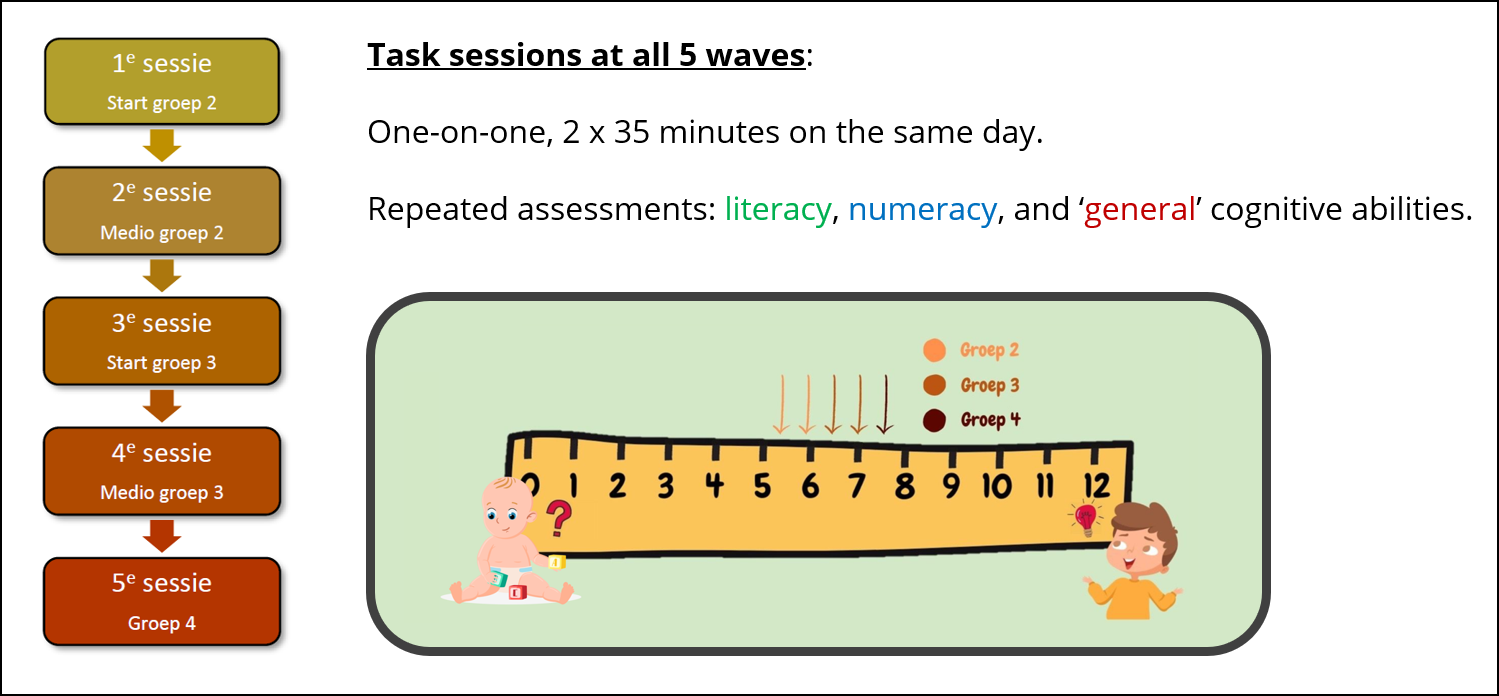My PhD project is called the “Radboud Early Academic Development Inquiry” (READI).
The READI project is a 5-wave longitudinal study, examining individual differences in early reading and math development throughout early primary school.
Across these five ‘waves’ (kindergarten – 2nd grade), we repeatedly assessed various cognitive, numeracy- and literacy-related abilities. Home-related measures such as parental education level (SES), parental expectations and parent-child activities were also included.
The project involved an initial sample of 224 children, and achieved a retention rate of 94% at the fifth time point.
Graphical description of the READI project:

Tasks that were included in our task battery:
Literacy:
- phonological skills
- vocabulary (Peabody)
- letter knowledge
- word reading fluency (DMT)
Numeracy:
- rote counting
- symbolic comparisons
- numberline estimation
- applied math
- arithmetic fluency (TTA)
‘General’ cognitive skills:
- verbal WM
- visuospatial WM
- non-verbal reasoning (Raven)
- rapid naming (RAN)
The data collection for the READI project was recently finished, in November 2024.
Using the navigation bar at the top of this page, you can find our (preliminary) results regarding the literacy (reading) and numeracy (math) development in our full sample, across the five time points.